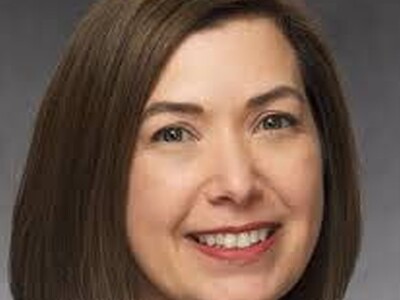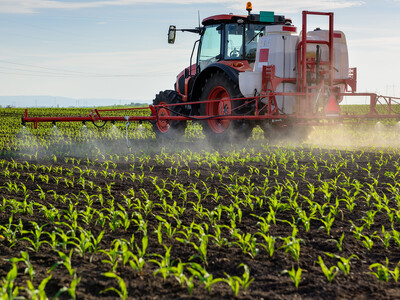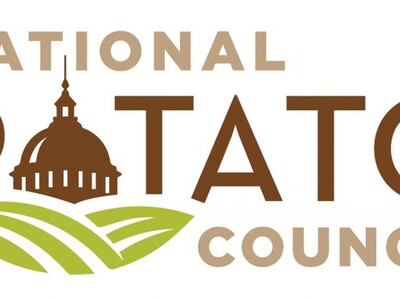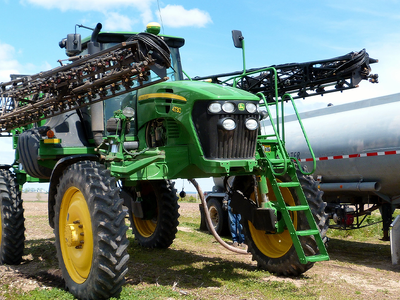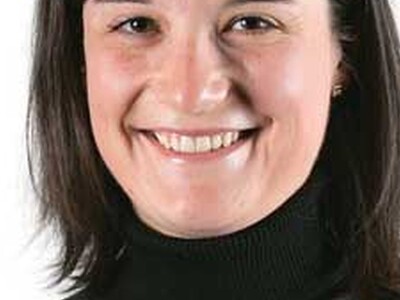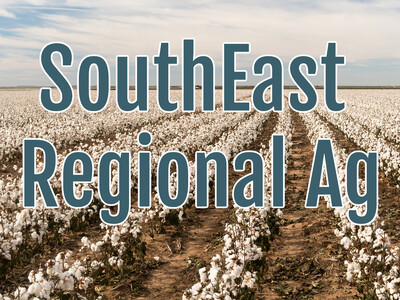Simpson visit
Idaho Farm Bureau Federation members recently spent a day and a half interacting and addressing major issues with Rep. Mike Simpson, R-Idaho.The time spent with Simpson gave regular Farm Bureau members a chance to ask the congressman questions or brief him on issues important to them.
“It was an opportunity for our members to get the congressman’s eyes on some issues we’re facing, such as depredation, water and forest management,” said Cameron Hammond, IFBF’s regional manager in East Idaho.
Simpson, who represents the state’s agriculture-heavy 2nd congressional district, covered a wide array of issues important to both the nation and Idaho.
During a town hall style event Aug. 5, Simpson started off by making it clear he supports agriculture and understands how important it is to the state and nation.
“I love being with Farm Bureau,” he told about 80 Farm Bureau members. “Idaho is still an agricultural state. It’s an important industry and you guys do so much … I love to get out here because you guys are the salt of the earth. It’s a very important industry.”
According to USDA’s Census of Agriculture, Idaho’s 2nd Congressional District is a national powerhouse when it comes to agriculture. It includes 11,825 farms and ranches that generated $8.5 billion worth of farm-gate revenue in 2022.
The district ranked No. 11 overall among the nation’s 435 congressional districts in total farm-gate revenue and among the top three in several individual agricultural commodities, including milk sales and potato and barley acreage.
IFBF Vice President Richard Durrant, a Meridian farmer, thanked Simpson for taking the time to visit with Farm Bureau members.
The organization appreciates the work that Simpson has done on agricultural issues, Durrant told fellow IFBF members. “He is very supportive of us in the ag world.”
“We appreciate how responsive you are,” IFBF Director of Government Affairs Braden Jensen told Simpson and his staff who joined him. “You always welcome us with open arms and we appreciate that.”
During the town hall event, Simpson answered questions from Farm Bureau members and staff.
On tariffs, Simpson said: “I’m not a guy who likes tariffs. But, if some country’s going to tariff our goods, then I’m OK with tariffing their goods at the same rate. That just seems fair.”
The congressman also addressed the immigration issue and said he understands agriculture’s need for a legal, reliable workforce and is working toward that goal.
“We have to be able to get a legal workforce for agriculture in this country,” he said. “We have to address this immigration issue….”
Simpson was also asked how he could work with Farm Bureau to create some more water storage capacity in Idaho.
“That’s a smart thing to do,” he said. “We could be looking at increasing the capacity of some of the reservoirs that we currently have. The other thing is recharge. Recharge is vitally important … I think it’s a smart thing to do.”
He was asked what steps are being taken to delist grizzly bears from the Endangered Species List.
“The state of Idaho wants to delist grizzly bears nationwide … and I think the state of Idaho is right,” Simpson said. “And I think we’re starting to move in that direction. And I think you’ll see that done.”
When asked how quickly that was possible, Simpson said: “Hopefully, within the next three years.”
On the subject of farmland loss, when Simpson was asked if anything can be done to protect farm properties from the impacts of urbanization, he responded, “Don’t sell it,” which brought significant applause from the town hall audience.
He followed that comment up by making a point that respecting private property rights has to be a big part of the effort to stem the loss of farmland.
“The last thing you want to do is do something that will prevent you from, if you choose to sell it, losing out on your ability to make a profit off of the land that you’ve invested in,” he said. “You don’t want to go that direction.”
The congressman was asked where he stood on the Make America Healthy Again movement.
“I actually like what MAHA is doing,” he said. “I don’t agree with everything they’re doing. Overall, I think it’s fine to review what we put in our foods and (see if it’s impacting our health).”
On Aug. 6, Farm Bureau members whisked the congressman and his staff to different sites around East Idaho, where the subjects of grizzly bears, forest management and water storage were discussed.
Experts on these issues from the state of Idaho and the Idaho Legislature joined that tour to offer their insights on these topics.
At a stop in Ashton, rancher Brody Harshbarger spoke about the impact to his operation that wolves have had and how the state taking over management of the predators from the federal government has made a huge difference. The same thing needs to happen with grizzly bears, he said.
“With the grizzly bears, we’re not there yet,” said Harshbarger, who is also an Idaho Fish and Game commissioner. “We need some management. We’re just inundated with them. There’s more than we need here.”
Mike Edmonson, administrator of the Governor’s Office of Species Conservation, said it is the policy of the state of Idaho to get grizzly bears delisted in the entire lower 48 states.
“We are pursuing all avenues to achieve that,” he said. “What we really want is state management of bears.”
Tour participants also traveled inside the heart of the Caribou-Targhee National Forest to discuss the need for better forest management. Better managing forests as a way to prevent some mega forest fires from happening was a main topic of discussion during this stop.
“We’re on the verge of disaster up here in the forest unless we start logging,” Harshbarger said. “We could be up here logging and getting funding for our schools. It seems such a shame not to be using this resource.”
Simpson agreed.
“We have to try to be more proactive if we are going to prevent some of these forest fires from happening,” the congressman said. “There’s so much fuel … Somehow, we have to reduce fuel loads. We have to do more prescribed burns and that type of stuff.”
Simpson told tour participants it’s hard to get some members of Congress to understand the type of natural resource issues that were discussed during his Farm Bureau tour.
“There are truly members of Congress that think milk comes from a carton,” he said. “They don’t know it comes from a cow because they have never been on a farm. They don’t have any idea what it is to live in a public lands state and they don’t know what multiple-use is.”
The final stop of the tour was at the site of the former Teton Dam, which collapsed in 1976, resulting in the deaths of several people and the flooding of much of that region.
There, several people, including some Idaho legislators, spoke of the need to create more water storage capacity in the state.
During the 2025 Idaho Legislature, lawmakers passed Senate Joint Memorial 101, which urges federal and state agencies to study and develop additional water storage solutions for Idaho, including the potential reconstruction of the Teton Dam.
Increased water storage could also include raising some existing reservoirs, doing more aquifer recharge or exploring smaller off-stream storage sites.
“We’re open to an all-of-the above approach,” Jensen said.
Rep. Rod Furniss, who represents District 31 in East Idaho, was the House sponsor of SJM 101.
During the Teton Dam site stop, he addressed the need to create more water storage in Idaho.
Rebuilding the Teton Dam is one possibility, if it makes sense and is safe, Furniss said. “And if not here, we need to find the place or places where we can store more water for crops, for recharge … to increase hydro power, and have more recreation opportunities to secure Idaho’s economic future.”
Furniss said about 2 million acre-feet of water leaves Idaho unused each year, enough to supply 8 million people for an entire year.
The reason that happens is simple, he said: “We don’t have enough capacity – enough reservoirs, dams or recharge sites – to capture the spring runoff and store it for when it’s needed later in the year.”
“Meanwhile, our aquifers shrink, our farms are asked to grow more with less and our communities brace for another dry season,” he said. “But it doesn’t have to be this way.”
Jeff Raybould, chairman of the Idaho Water Resource Board, said there are lots of places around the state where additional surface water storage could be built.
“We have to better manage our resource,” he said. “We need to have more surety for water.”
Rep. Britt Raybould, a farmer who represents District 34 in East Idaho, thanked IFBF for its help in securing an additional $30 million for water projects during the 2025 legislative session.
“Every dollar we invest in water easily pays back to the state ten times,” she said.
Rep. Jerald Raymond, a rancher who represents District 31 in East Idaho, said the search for more water storage capacity could include the possibility of smaller, off-stream storage sites.
“Let’s encompass all ideas when we do this study and think outside the box,” he said.
During the Teton Dam site stop, Simpson told participants that water is very important to him. “If you need help in Washington, I’ll be there to help,” he said.
On the subject of potentially rebuilding the Teton Dam, he made it clear he would not be the one making the final decision.
“I’m going to do whatever … the people of Idaho want to do,” he said. “But it certainly needs to be studied.”








